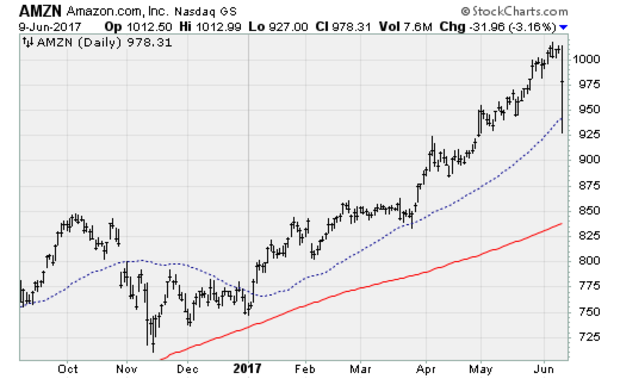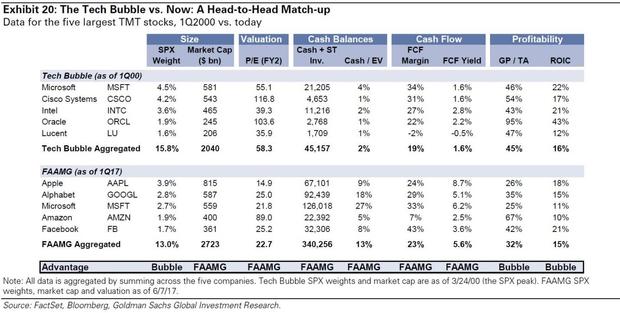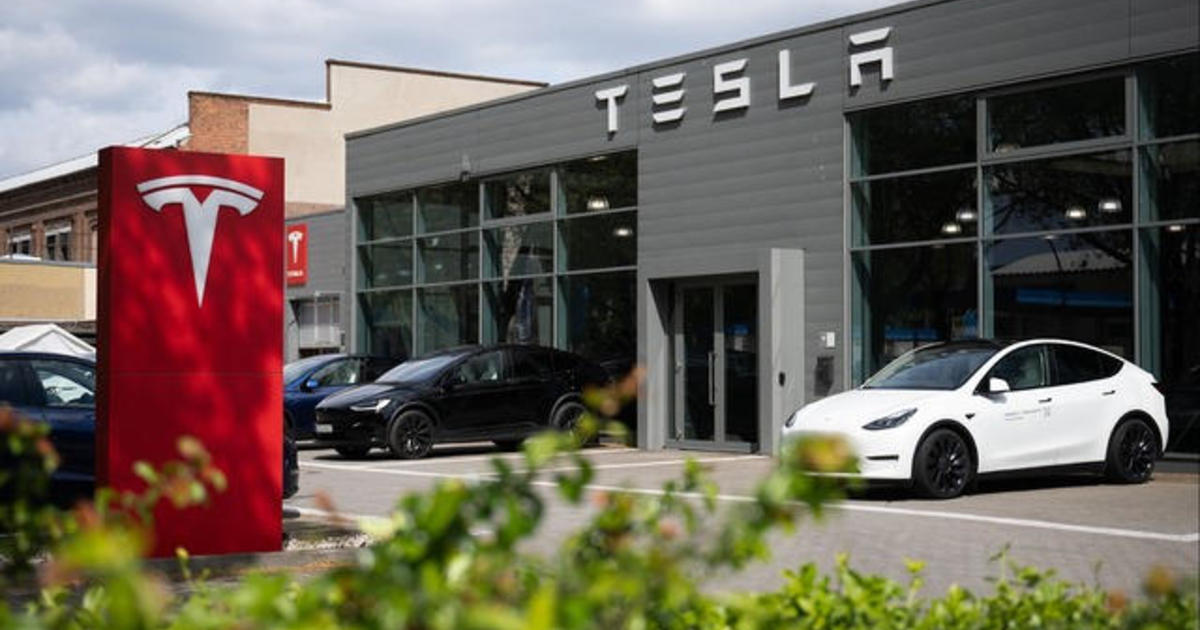A bloody nightmare of a selloff for tech's "FAANG" stocks
Investors on Friday suffered a wild ride in the big tech stocks that have been at the center of so much of the market action lately. The Nasdaq Composite dropped 1.8 percent -- it was down nearly three percent at its nadir for the day -- as the dreamy, parabolic rise of the "FAANG" stocks devolved into a bloody nightmare of a selloff.
FAANG and FANG and sometimes FAAMG are the various acronyms for the small group of mega-cap stocks -- Facebook (FB), Amazon (AMZN), and Apple (AAPL), then Netflix (NFLX) or Microsoft (MSFT), and Google parent Alphabet (GOOGL) -- that have been driving the Nasdaq to new highs while the rest of the market languishes in a sideways pattern going back to early March.
Amazon even suffered an intra-day "flash crash" -- a rapid, computer-driven flush to a loss of more than eight percent before rebounding. If the drop had stuck, it would've been the largest one-day decline since 2014, back when the stock traded around $300 a share -- far, far away from the $1,000-a-share level the stock surpassed earlier this month to great fanfare.
Two catalysts drove the selloff, and both suggest the selling pressure could continue into next week, when investors must contend with the specter of another Federal Reserve interest rate hike.
First, Goldman Sachs defanged the FAANG rally with a bearish note warning of a valuation "air pocket." This followed a separate note by Bank of America Merrill Lynch warning that active large-cap funds had increased their exposure to tech by the largest margin ever, exceeding even the extremes of the dotcom bubble.
Consider how extended Amazon's valuation has become. According to Goldman, Amazon is trading at a price-to-earnings multiple of 89, vs. an average multiple of 58 for the core dotcom bubble stocks back in 2000. Free cash flow margin stands at 7 percent for Amazon vs. 19 percent for the dotcoms in 2000, while return on invested capital stands at just 10 percent vs. 16 percent.
There is no other justification for Amazon's rise: Investors were simply chasing momentum for momentum's sake. Now that the momentum has reversed, there is a scramble to be the first out the door.
The second catalyst is the possible reappearance of the "Trump-flation" trade after former FBI director James Comey's Congressional testimony on Thursday cleared -- in much of Wall Street's view -- some of the darks clouds carrying words like "impeachment" and "obstruction of justice" from around President Trump.
The result were nice gains for bank and energy stocks amid the tech-sector carnage. The Energy Select SPDR (XLE) soared 2.4 percent on Friday while the Financial Select SPDR (XLF) gained 1.9 percent.
Investors are looking at relative value here: Tech is up around 19 percent for the year to date while both energy exploration and production and oilfield services stocks are down more than 20 percent. Banks are getting a lift thanks to a small backup in long-term yields (boosting their net interest margins) and chatter that upcoming "stress test" results from the Federal Reserve could allow higher capital returns to shareholders.
Heading into next week, all eyes will be on the upcoming Federal Reserve policy meeting, with its updated economic projections and press conference by Fed Chair Janet Yellen. There's a lot on the table here. Although the futures market has priced in another quarter-percentage point interest rate hike, the Fed's current rate-path forecast is more aggressive than where the market is now. The Fed is looking for another two rate hikes this year and the start of a balance sheet taper, while the futures market is betting on only another two hikes through 2019.
All this, along with the fact that stocks are trading in a universe separate from recent disappointments on the economic front (much of the data are missing analyst estimates on a scale not seen since early 2016, when oil prices were suddenly collapsing), will need to be reconciled.






